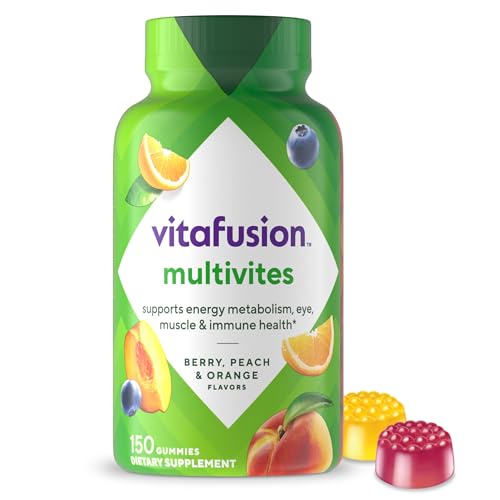Introduction to Dietary Supplements
Dietary supplements play a significant role in today’s health-conscious society, serving as auxiliary sources of essential nutrients that might be lacking in a person’s diet. These products can take various forms, including vitamins, minerals, herbs, amino acids, and enzymes, each designed to support specific health functions or dietary shortcomings. The primary purpose of dietary supplements is to complement a well-balanced diet rather than replace whole foods, which are rich in various nutrients and fiber necessary for optimal health.
A comprehensive understanding of one’s nutritional needs is essential before introducing any supplements into a daily regimen. Factors such as age, gender, activity level, dietary restrictions, and existing health conditions should be taken into account. For instance, individuals following a vegetarian or vegan diet may require additional Vitamin B12 supplementation since this nutrient is predominantly found in animal products. Similarly, those with dietary restrictions or specific health conditions may find benefit in certain supplements to fill nutritional gaps or support bodily functions.
Moreover, the benefits of dietary supplements can be extensive, ranging from enhanced immunity to improved energy levels and better skin health. However, it’s crucial to approach supplementation with caution. The effectiveness and safety of supplements can vary, and some may interact with prescribed medications or lead to adverse effects, especially if not taken as directed. Therefore, consulting a healthcare professional or a registered dietitian before starting any supplement regimen is advisable. They can provide personalized advice based on individual health profiles and dietary requirements, ensuring that any supplementation complements the existing diet effectively.
Multivitamins: The Daily Nutrient Boost
Multivitamins serve as a fundamental supplement that provides an assortment of essential vitamins and minerals, playing a critical role in maintaining overall health. In an increasingly fast-paced world, many individuals find it challenging to secure the recommended daily intake of nutrients solely through diet. This is where multivitamin supplements become invaluable, acting as a convenient and efficient means of filling nutritional gaps.
Common vitamins found in multivitamins include Vitamin A, B-complex vitamins (such as B12 and folate), Vitamin C, Vitamin D, and Vitamin E. Each of these vitamins has unique functions within the body; for instance, Vitamin A is vital for maintaining healthy vision and immune function, while B-complex vitamins are key players in energy metabolism. Vitamin C is important for collagen production and antioxidant protection, whereas Vitamin D supports bone health and immune system functioning. Additionally, Vitamin E contributes to skin health and acts as an antioxidant, protecting cells from damage.
People who may benefit significantly from multivitamins include those with dietary restrictions, such as vegetarians or vegans, who might lack certain nutrients primarily found in animal products. Older adults, who often experience decreased nutrient absorption, as well as pregnant and breastfeeding women, who have higher nutritional needs, may also find that multivitamins play a crucial role in promoting their health.
When selecting a multivitamin, it is essential to consider several factors to ensure that one chooses a high-quality product. Key aspects include the formulation’s dosage, the source and quality of ingredients, and the bioavailability of the nutrients, as some forms of vitamins and minerals are more readily absorbed than others. Consulting with a healthcare professional can further aid in making informed choices about the appropriate multivitamin for one’s lifestyle and dietary needs.
Omega-3 Fatty Acids: Essential for Heart and Brain Health
Omega-3 fatty acids are polyunsaturated fats that play a crucial role in maintaining heart and brain health. These essential fats are not synthesized by the body, necessitating their intake through diet or supplementation. Research suggests that omega-3s contribute significantly to cardiovascular health by reducing inflammation, lowering blood pressure, and decreasing triglyceride levels. Furthermore, they are vital for cognitive functions, with studies showing that adequate omega-3 intake can enhance memory, mood, and overall brain performance.
There are various sources of omega-3 fatty acids, categorized into marine and plant-based options. Fatty fish such as salmon, mackerel, and sardines are excellent sources, as they contain eicosapentaenoic acid (EPA) and docosahexaenoic acid (DHA), two types of long-chain omega-3 fatty acids. For those following a vegetarian or vegan diet, flaxseed oil, chia seeds, and walnuts offer alpha-linolenic acid (ALA), a plant-based omega-3 that the body can partially convert to EPA and DHA.
The recommended daily intake of omega-3 fatty acids varies based on dietary guidelines, but many health organizations suggest a minimum of 250-500 mg of combined EPA and DHA per day for adults. However, individuals with specific health conditions may require higher dosages, often under medical supervision. While omega-3 supplementation is generally considered safe, it may pose certain risks, particularly for those taking blood-thinning medications, as it can further increase bleeding risk. Additionally, maintaining a balance between omega-3 and omega-6 fatty acids is essential, as a skewed ratio can lead to health issues such as inflammation and chronic diseases.
Probiotics: Enhancing Gut Health
Probiotics are live microorganisms that provide health benefits when consumed in adequate amounts. These beneficial bacteria are primarily found in fermented foods like yogurt, sauerkraut, and kimchi, as well as in dietary supplements. The role of probiotics in maintaining a balanced gut microbiota is vital for overall health, as they aid in digestion and enhance nutrient absorption. Numerous strains of probiotics exist, including Lactobacillus and Bifidobacterium, each offering unique health benefits.
One of the most prominent advantages of probiotics is their ability to improve digestive health. They help maintain the intestinal flora’s balance, which can lead to reduced instances of diarrhea, especially during antibiotic use. Furthermore, regular consumption of probiotics may alleviate symptoms associated with irritable bowel syndrome (IBS) and inflammatory bowel diseases (IBD). Beyond digestion, these microorganisms play a crucial role in strengthening the immune system; they promote the production of antibodies and stimulate the activity of immune cells, thereby enhancing the body’s natural defenses against pathogens.
When selecting a probiotic supplement, it is essential to consider the colony-forming units (CFU), which indicate the number of viable bacteria in each dose. A higher CFU count does not always guarantee better results; instead, the effectiveness often depends on the specific strains and their compatibility with individual gut microbiomes. It is crucial to choose a probiotic that aligns with one’s health needs. Additionally, understanding the distinction between probiotics and prebiotics is fundamental. While probiotics consist of live bacteria, prebiotics are non-digestible fibers that feed these good bacteria, promoting their growth and activity.
Incorporating probiotics into one’s daily regimen can significantly enhance gut health and overall well-being, making them a valuable addition to a balanced diet.
Vitamin D: The Sunshine Vitamin
Vitamin D plays a crucial role in maintaining overall health, particularly in the realms of bone health and immune function. Often referred to as the “sunshine vitamin,” it is unique because it can be synthesized through skin exposure to sunlight. When ultraviolet rays from the sun hit the skin, Vitamin D is produced, making sun exposure a natural source of this vital nutrient. However, factors such as geographical location, skin pigmentation, age, and lifestyle can significantly influence an individual’s ability to generate sufficient Vitamin D from sunlight alone.
In addition to sun exposure, Vitamin D can also be obtained from dietary sources. Fatty fish, such as salmon and mackerel, fortified dairy products, and egg yolks contain considerable amounts of Vitamin D. For those who find it challenging to meet their Vitamin D needs through diet and sunlight, supplementation may be necessary. Vitamin D supplements come in two primary forms: D2 (ergocalciferol) and D3 (cholecalciferol), with the latter being more effective in raising blood levels of the vitamin.
According to health guidelines, the recommended daily intake of Vitamin D varies by age, sex, and specific health conditions. Adults generally require about 600 to 800 IU (International Units) per day, while individuals over the age of 70 may need more due to decreased skin synthesis. Despite its importance, Vitamin D deficiency is prevalent across various populations, particularly among those with limited sun exposure, such as individuals living in northern latitudes or those who spend most of their time indoors.
Symptoms of low Vitamin D levels may include fatigue, bone pain, muscle weakness, and an increased risk of infections due to compromised immune function. In such cases, appropriate supplementation can help individuals achieve optimal levels of this essential vitamin, ensuring that both bone health and immune responses remain robust.
- One 200 count bottle of Centrum Silver Women’s Multivitamin for Women 50 Plus, Multivitamin/Multimineral Supplement with…
- Centrum Silver is the number 1 Doctor recommended multivitamin brand now shown to support memory and cognition in older …
- Supports memory and cognition as you age (1)
- Nutritional support supplement: contains one 130 count bottle of Nature Made Multivitamin Tablets with Iron for a 130-da…
- Daily multivitamin with Iron that provides immune support, muscle support, bone support, and energy metabolism support(1…
- This multivitamin supplement is also formulated with 23 key nutrients, including Vitamin A, Vitamin C, Vitamin D, Vitami…
- Delicious and Nutritious: Vitamins fused with delicious berry, peach and orange flavors for a taste you’ll love!
- America’s #1 gummy vitamin brand: We deliver the best vitamin experience so you look forward to your daily dose!
- Each serving provides: Antioxidant Vitamins C & E and an excellent source of vitamins B12, B6, Folic Acid and Pantotheni…
- HEALTH, REJUVENATE & FOCUS: Our Vegan multivitamin supplement for women over 40 promotes overall health and well-being, …
- VITAMINS AND MINERALS FOR WOMEN: Your health needs change over time, but that’s part of the adventure; Our Women’s Multi…
- HORMONE SUPPORT SUPPLEMENTS FOR WOMEN: Our Women’s Multi includes vegan vitamin D3 plus Organic Black Cohosh, Tomato (ly…




